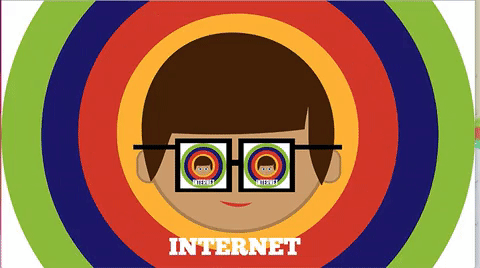The Office of the eSafety Commissioner, an Australian government agency dedicated to keeping Internet users safe online, conducted a national survey to understand older adults’ digital habits in Australia (2018). The survey results reveal that some older adults—aged 50 years and up—have a desire to learn and develop digital skills, but find it intimidating to learn about and ask for assistance using electronic devices and the Internet.
Some older adults are hesitant to use digital devices and the web because they have concerns about if the Internet is safe, and how using digital devices and the Internet can enhance the way they live.
Participants in the study either viewed spending time online as a guilty pleasure or a waste of time, among other opinions. In some participants’ eyes, the Internet could be a distraction from activities deemed more valuable, such as being with other people in-person or spending time outdoors. Other participants acknowledged the fear of getting addicted to the Internet and spending more time online than they intended.

Internet and Digital Device Usage in Older Adults
According to the survey results, an estimated 70 percent of older adults in Australia use the Internet more than once a day. Older adults with high digital literacy were nearly three times more likely to utilize Internet services several times a day than adults with low digital literacy. The majority of adults in this category of Internet use were between the ages of 50 and 65 and had more ‘digital confidence’ than participants of older ages.
An estimated nine percent of the population 50 years old and up did not have any access to a digital device. Additionally, 11 percent of the people did not have any ways to connect to and access the Internet. These individuals were most likely 70 years old and up.
Individuals 70 years and older face these barriers on top of their limited or complete lack of experience using digital devices; adults in this demographic would rather learn how to use electronic devices and acquire digital skills face-to-face.

Half of the participants indicated that they didn’t want to increase their internet use; these individuals were most likely to be 70 years old and over. The other half of the participants demonstrated an interest in improving their Internet use. Learning more about how to work digital devices or use social media, and faster Internet access and a better connection would encourage them.
Barriers to Good Digital and Online Experiences
Professionals in the digital market acknowledge the problem of slow Internet speeds and poor connection. According to industry experts, the delivery of reliable, high-quality, and affordable Internet service in Australia needs improving.
For older adults and those on a fixed or low income, the National Broadband Network (NBN)—Australia’s open-access broadband network initiated by the government—is becoming too expensive.
Ways for Seniors to Save on Internet Use
One way older adults can save money on the Internet is to avoid having many devices connected to their network. Internet users in this age demographic can handle their online activities on a single tablet or laptop, rather than using them across several gadgets.
Another way to rectify struggles experienced with NBN plans is to switch to other internet plans that offer different speeds, quality, and data limits, for a better price. Older adults that use the Internet may use it to make searches on Google and not much else. Additionally, they’re unlikely to use Microsoft Office 365 programs or stream games and music online the way younger Internet users might. A basic Internet plan may suffice for seniors, whereas a college student who uses the Internet for homework, gaming, and streaming and downloading means of entertainment may need a high Internet plan.

Older adults seeking an Internet plan to suit their needs and household usage should consult a reputable online resource, such as iSelect, that provides users information about Internet providers in the Australian market and the plans and they offer. Internet plan comparison with iSelect enables Internet users to make an informed choice on the broadband plan and accompanying features that suit their household at a reasonable price.
Interesting related article: “Facebook usage by US seniors.”

